
Inclusive Workplaces
Breaking Barriers and Celebrating Women in Tech on International Women’s Day
Blog

Has your business created an environment where everyone has the opportunity to thrive? With more companies learning how they can foster an inclusive workplace that respects and nurtures the unique abilities of neurodivergent individuals, we begin to pave the way for broader social acceptance and understanding, bridging the gap between diverse communities.
We had the privilege of interviewing Brandi Douglas (she/they), a neurodivergent leader whose inspiring journey demonstrates the power of embracing diversity and overcoming challenges. Her story emphasizes the importance of cultivating a safe and supportive workspace that empowers neurodivergent individuals to thrive, which in turn contributes to the overall success of an organization.
Hailing from Tacoma, Washington, Brandi, proud member of the Puyallup Tribe, has a rich background in legal and entrepreneurial endeavors. A serial entrepreneur, she co-owns multiple businesses and founded a number of them as well. Their current focus is Mending Matriarch, where she produces works inspired by her intersectional experience as a queer, multiracial and neurodivergent person.. Additionally, Brandi advocates for the LGBT+ community and serves as a board member for Native Women Lead.
In this article, we’ll delve into the importance of understanding and embracing neurodiversity in the workplace, drawing from Brandi’s experiences to illustrate effective communication strategies for virtual teams. Together, let’s challenge misconceptions about neurodiversity in the workplace and instead focus on how these unique strengths contribute to a more inclusive and diverse future.
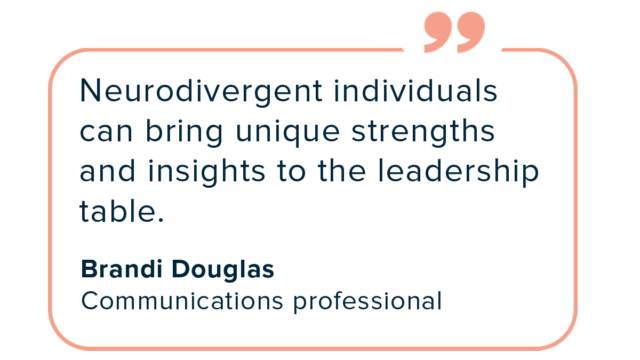
Throughout her career, Brandi has faced challenges related to her neurodivergence, such as difficulties with time management, organization, and communication. However, she has managed to turn these obstacles into opportunities by leveraging her exceptional strengths. Some of the ways she’s transformed her challenges into strengths include:
By embracing her neurodiversity in the workplace and developing strategies to navigate her challenges, Brandi has become an effective leader and teammate, inspiring her team and fostering success in a virtual work environment.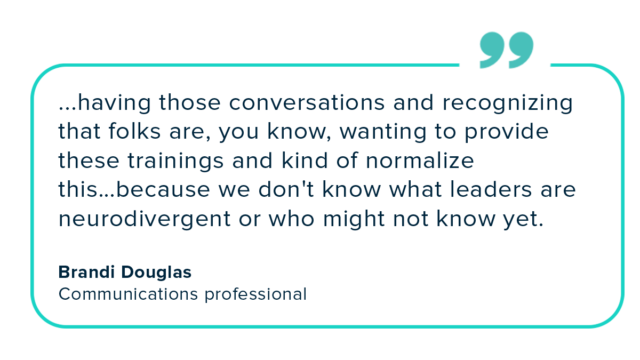
Through trial and error, Brandi has found strategies to embrace neurodiversity in the workplace and use it as an advantage She’s found several personal strategies and techniques to help her stay organized and manage her time effectively, especially while working with a virtual team.
Drawing from her experiences, she shares the following insights:
By implementing these strategies, Brandi’s been able to harness her strengths to help overcome the unique challenges she faces with her neurodiversity in the workplace, which in turn has helped her team succeed. Further demonstrating how leaders can benefit by supporting their teams and even excel when they embrace an inclusive work culture.
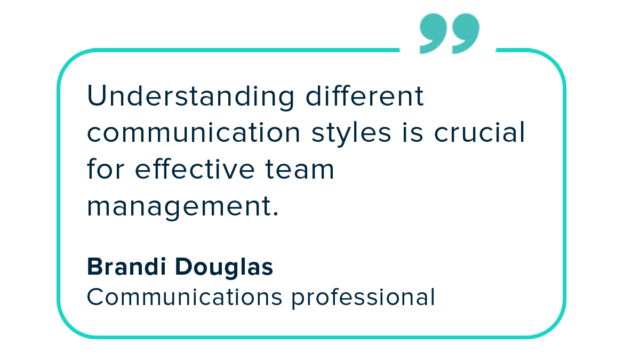
When we spoke with Brandi about some common misconceptions that people hold about neurodiversity in the workplace, Brandi highlights a stereotype she’s personally experienced throughout her wide array of leadership experiences.
She shares that it’s common to hear people think neurodivergent people are scatterbrained or unable to handle stressful situations and the negative view people have of this. It’s important to recognize and celebrate these strengths rather than perpetuating stereotypes and stigma.
We’ve compiled a list of other misconceptions neurodivergent individuals often face:
To remove bias and misconceptions in the workplace regarding neurodivergence, organizations should educate employees about neurodiversity, encourage open dialogue, and implement tailored accommodations and support systems.
By doing so, you can foster a more inclusive, innovative, and high-performing work environment. This shift in perspective not only benefits neurodivergent team members but also enhances the overall success and growth of your business as a whole.
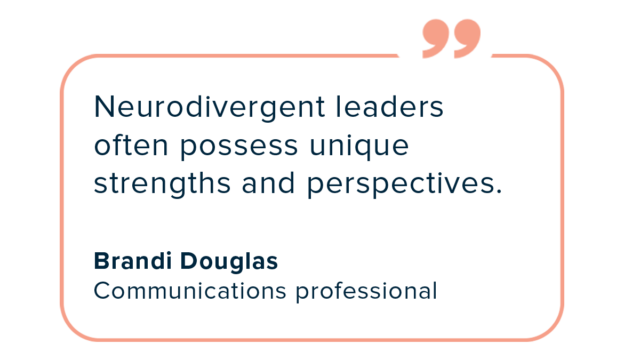
In response to the question of what advice she would give to other neurodivergent leaders or leaders with neurodivergent team members, Brandi emphasizes the following points:
By following these recommendations Brandi outlines, neurodivergent leaders and those who support them can foster a more inclusive and innovative workplace, ultimately leading to your business retaining and attracting a roster of top talent.
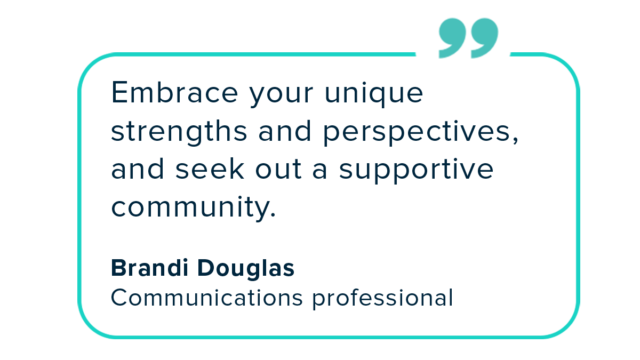
Understanding and embracing neurodivergence as a leader is essential for fostering a more inclusive and effective work environment. By dispelling misconceptions and promoting the unique strengths of neurodivergent individuals, we can create a more diverse and innovative business landscape.
For neurodivergent leaders and those who support them, consider exploring the benefits of a virtual assistant to help you stay organized and manage your time effectively. Combined with the tips Brandi has shared, you’ll greatly enhance your ability to lead your team efficiently and productively.
So, speaking to all neurodivergent individuals in the workplace and their allies – embrace your unique strengths, seek support from your community, get help when you need it, and watch as you and your team thrive in an inclusive environment.
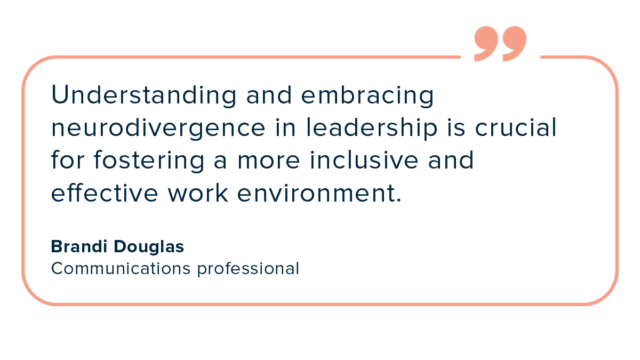
We connect you with the right talent so you can delegate and save time, confident your projects are in capable hands. Our remote team of skilled Virtual Assistants does it all, from bookkeeping and marketing to data entry and administrative support.